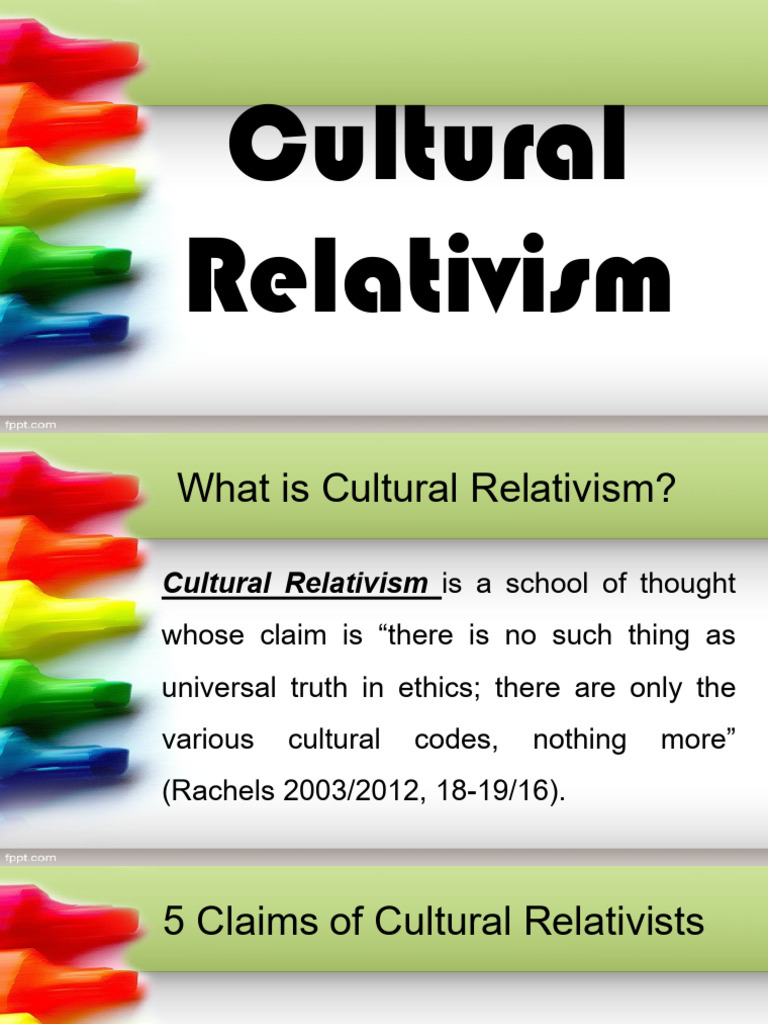Cultural relativism is a concept that invites reflection on the myriad ways in which human societies create and comprehend their cultural frameworks. At its core, cultural relativism posits that a person’s beliefs and activities should be understood within the context of their own culture. This perspective urges us to reconsider our moral judgments regarding customs and practices that may differ from our own, fostering a nuanced appreciation of diversity.
The term encompasses an intricate landscape of anthropological theories and philosophical discourse. While the simple definition seems straightforward, the implications and consequences of cultural relativism are far-reaching and often contentious. Understanding cultural relativism requires a foray into its historical development and its practical applications in contemporary society.
Historically, the roots of cultural relativism can be traced to the late 19th and early 20th centuries, coinciding with the rise of anthropology as a formal discipline. Pioneering anthropologists such as Franz Boas championed the idea that cultures should be analyzed without ethnocentric bias. Boas argued against viewing cultures through the lens of Western ideals; instead, he advocated for the validity of diverse cultural expressions. This foundational work laid the groundwork for future explorations of cultural relativism, as it established the principle that no culture is superior to another.
One of the most illuminating aspects of cultural relativism is its challenge to universalist notions of morality. Traditional moral frameworks often presume a set of norms that are applicable across all human societies. Cultural relativism, however, contends that moral codes are, in fact, deeply embedded in cultural contexts. This leads to complex discussions about practices that may seem objectionable from one culture’s perspective but are embraced in another.
For instance, consider the ritualistic practices of certain indigenous peoples. To an outsider, these rituals may appear strange or even barbaric, but to those within the culture, they hold profound significance. Cultural relativism implores observers to suspend judgment and seek to understand the motivations and values that inform these practices. This does not necessarily imply endorsement; rather, it encourages empathy and the recognition of cultural nuances.
As societies become increasingly interconnected through globalization, the relevance of cultural relativism becomes more pronounced. The advent of technology and travel has facilitated the exchange of cultural ideas, resulting in hybrid practices. Yet, this convergence also incites debates on cultural appropriation and authenticity. As cultural boundaries blur, cultural relativism serves as a critical lens through which to examine these dynamics. It prompts a reconsideration of ownership and agency in cultural exchanges, asking who gets to represent a culture and whose interpretations prevail.
Moreover, the application of cultural relativism extends to discussions of human rights. The universality of human rights is often invoked as a principled stance against practices considered oppressive. However, cultural relativism cautions against imposing external standards without understanding the specific historical and social contexts in which these practices occur. This tension highlights the ongoing dialogue between respecting cultural diversity and advocating for universal principles.
Critics of cultural relativism argue that it can lead to moral nihilism or a paralysis of ethical responsibility. If all cultural practices are deemed equally valid, this perspective may inadvertently excise the possibility of critique or reform. For example, should practices that violate basic human rights be overlooked simply because they are culturally sanctioned? This question has sparked intense debates among scholars, activists, and ethicists.
Advocates of cultural relativism counter this argument by asserting that ethical frameworks must evolve within their sociocultural contexts. They argue that cultural evolution allows societies to address injustices and promote human rights while remaining cognizant of their unique cultural identity. This perspective can foster social change from within, rather than through imposed external pressures that may lead to cultural erasure or resentment.
In practical terms, cultural relativism can enhance intercultural communication and reduce conflict. By fostering understanding and appreciation for cultural differences, individuals can navigate interactions with greater sensitivity and awareness. This approach encourages immersive experiences where people engage with cultures on their own terms, facilitating genuine exchanges and enriching personal growth.
However, cultural relativism is not without its challenges. The balance between respecting cultural distinctions and advocating for critical engagement with harmful practices is delicate. It requires individuals and societies to grapple with their moral compass while addressing power dynamics and potential exploitation.
In conclusion, cultural relativism offers a lens through which to navigate the complexities of cultural diversity. It encourages a balanced understanding of cultural practices, advocating for empathy while acknowledging the historical and social contexts that shape them. The continuation of this discourse is vital as the global community faces increasing challenges, including social injustice and environmental crises. Ultimately, the quest for understanding through cultural relativism reflects a profound engagement with the human experience, urging us to confront our assumptions and seek deeper connections across a multifaceted world.
